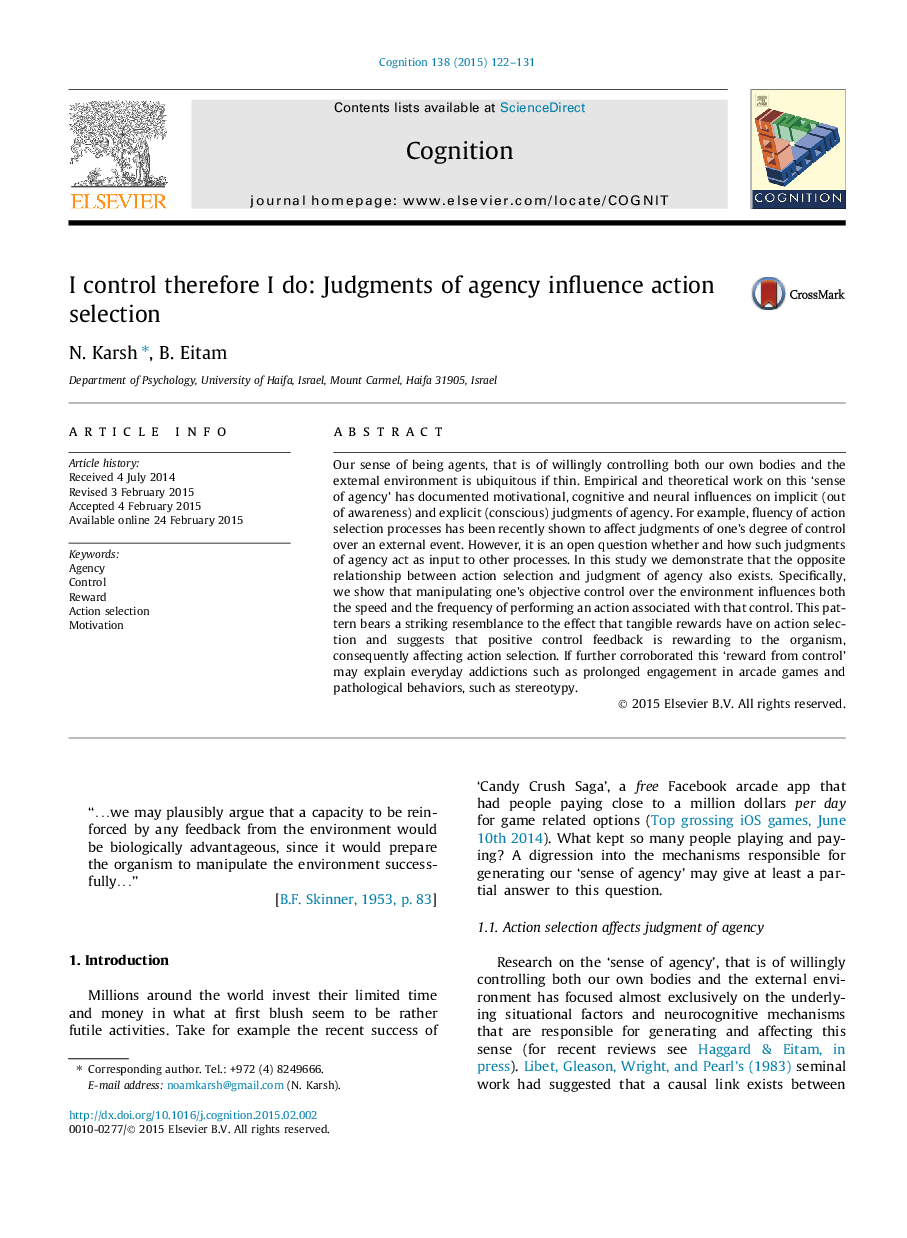| Article ID | Journal | Published Year | Pages | File Type |
|---|---|---|---|---|
| 7287188 | Cognition | 2015 | 10 Pages |
Abstract
Our sense of being agents, that is of willingly controlling both our own bodies and the external environment is ubiquitous if thin. Empirical and theoretical work on this 'sense of agency' has documented motivational, cognitive and neural influences on implicit (out of awareness) and explicit (conscious) judgments of agency. For example, fluency of action selection processes has been recently shown to affect judgments of one's degree of control over an external event. However, it is an open question whether and how such judgments of agency act as input to other processes. In this study we demonstrate that the opposite relationship between action selection and judgment of agency also exists. Specifically, we show that manipulating one's objective control over the environment influences both the speed and the frequency of performing an action associated with that control. This pattern bears a striking resemblance to the effect that tangible rewards have on action selection and suggests that positive control feedback is rewarding to the organism, consequently affecting action selection. If further corroborated this 'reward from control' may explain everyday addictions such as prolonged engagement in arcade games and pathological behaviors, such as stereotypy.
Related Topics
Life Sciences
Neuroscience
Cognitive Neuroscience
Authors
N. Karsh, B. Eitam,
